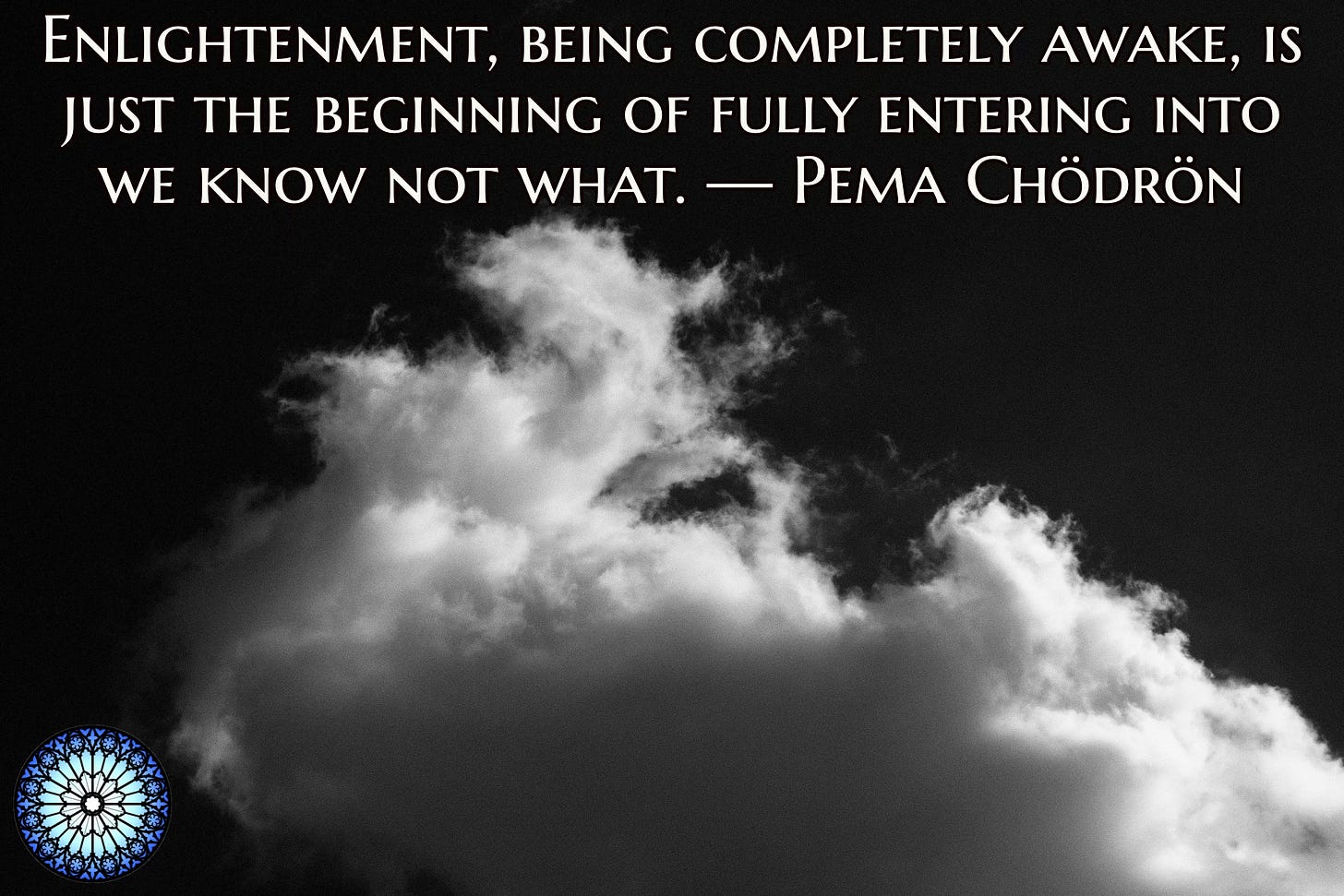Completely Awake
Enlightenment Means More Wonder and Possibilities, Not Less
Pema Chödrön (b. 1936) is an American-born Tibetan Buddhist nun and the author of numerous books and audiobooks, most of which present Buddhist teachings in an accessible and down-to-earth way. In one of her earliest books, The Places That Scare You: A Guide to Fearlessness in Difficult Times, she offers an interesting perspective on the concept of enli…




